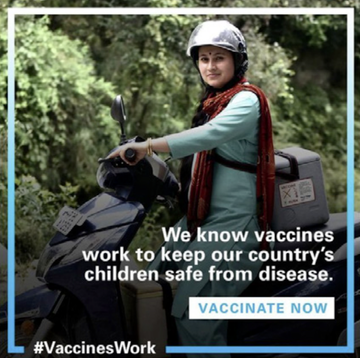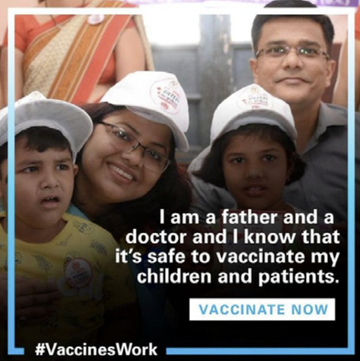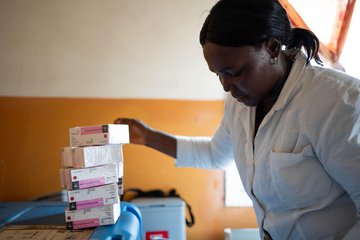Principle 4: Build trust and use credible communicators
The cornerstone of vaccination acceptance is public trust: trust in vaccines and vaccine producers, in the government and above all in healthcare professionals.* While the information provided needs to be credible, the information source or communicator also needs to be seen as credible and trusted by the community.
Persuasion researchers have long known that there are three key attributes to the most effective messengers:
- Expertise
- Trustworthiness
- Similarity
A recent study showed that trustworthiness was actually more important than expertise when addressing vaccine misinformation.** Anything and anyone who helps to build trust with the audience will help unstick misinformation, especially with vaccines.
Evidence shows that doctors are among the most trusted sources of health information and that provider recommendations of vaccination significantly increase vaccine uptake. This makes them excellent messengers for vaccination communications, especially if they vaccinate themselves and their children.
Example:
A message from a doctor saying, “I vaccinated my children, and you should too” can be an effective message.
Good Practice: Credible Communicators


In India, different messengers were tested for their ability to positively shift attitudes towards vaccination. Using images of healthcare worker heroes who face challenging terrains to reach children in need, and of credible fathers who were also doctors, was effective in strengthening the perceived importance of routine immunization and trust in vaccines among Facebook users exposed to these messages.
Sources:
*: Gesser-Edelsburg A, Diamant A, Hijazi R, Mesch GS (2018) Correcting misinformation by health organizations during measles outbreaks: A controlled experiment. PLoS ONE 13(12): e0209505.
**: Pluviano S, Della Sala S, Watt C. The effects of source expertise and trustworthiness on recollection: the case of vaccine misinformation. Cogn Process. 2020;21(3):321-330.
Average Rating: ☆ ☆ ☆ ☆ ☆ (0 reviews)


